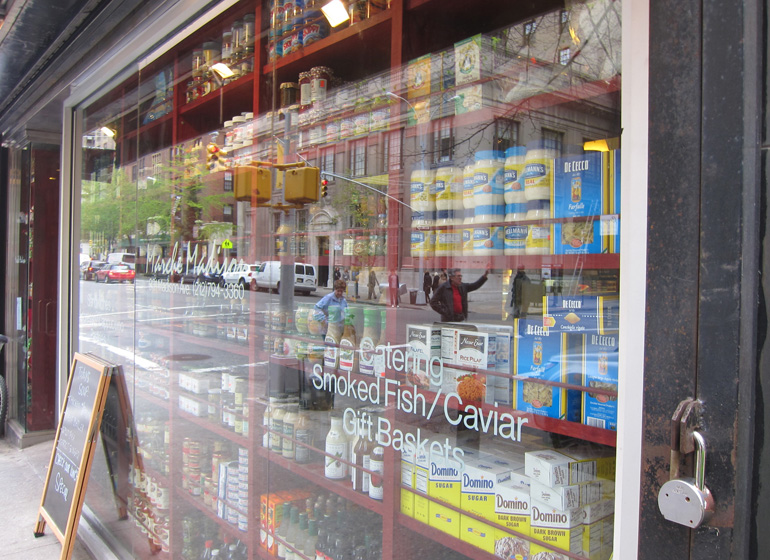Gotham Diary:
Funeral
17 April 2012
The last time I attended a funeral in New York City, it was held at the same church that I’m off to this morning, St Vincent Ferrer. Then it was the father; today it is the mother of Kathleen’s very old friend. I believe that I’ve been to one funeral in between. It would surprise me to learn that I’ve been to as many as ten funerals in my lifetime. I don’t believe that I’ve ever been to the funeral of a friend of my own, which is partly great good luck and partly proof that I have never had many close friends. At this point in time, I doubt that I would leave the metropolitan area (fly, that is) to attend any funeral at all. Nor, I think, would I go if the dead person’s connection to Kathleen were not a strong one. That’s to say that, left to myself, I would make it a point not to go to funerals.
Or would I? I must say that I’m keen to see who shows up this morning. Following Proust, Alan Hollinghurst and Edward St Aubyn are but two novelists who have recently made use of the funeral roll-call as a narrative device so irresistible that its a forcible reminder of our primate antecedents.
Today’s funeral is also going to be a Mass, which is a great bore. I can hardly hear liturgical formulas anymore without wanting to scream — scream! — for them to stop. This has nothing to do with atheism or agnosticism or any metaphysical considerations at all. It has to do with the conviction that the Roman Catholic Church long ago embalmed the teaching of Jesus in amber, as a way of shutting him up, and set the ornament in a jewelled monstrance of incredible vulgarity. In short, I feel the revulsion of one of the more austere Protestant divines, five hundred years ago. Something like that. Nothing is new under the sun.
***
Babysitting for Will last night was a companionate affair. He watched videos on the iPad for nearly two hours, every now and then coming over to where I was sitting for a hug (his idea) and a few crumbs from the muffin that he steadily dismantled, raisin by raisin, throughout the evening. I read feeds on the Kindle Fire. When Will had had enough of Kipper (adorable), Thomas, and Pingu (not so much), we went into his room and settled down for the night. He lay on his pillows with his bottle while I sat at the edge of the bed and read A Child’s Garden of Verses. I read the whole book, but when I was through, he was asleep.
***
The funeral was difficult. Something had set inside me since my last experience of Catholic liturgy, and the result was that there was no way in which I could pretend to be part of the community gathered together for the Mass. If I had been brought up in another faith, perhaps I might have sat respectfully through the service, but that was not the case, not the case at all. If the essence of Christianity is faith in personal redemption through Jesus Christ — to the extent that that’s another way of describing an afterlife in heaven — I am very settled in my unchristianity. To say more, or to put it more vehemently, seems pointlessly rude, and I mean no disrespect to those who draw comfort from Christian faith. But I can never share it — either the faith or the comfort. I never have, and I should never want to.
When I was a child, the idea that faith could be a comfort was pretty laughable: religion was really just a set of roadmaps for going to hell. Do this and you’re damned, do that and you’re damned, &c. Whatever the fine points of penitence might be, the Dominican nuns who saw to my introduction to catechism had one simple goal: to scare the hell out of us, especially the clever ones like me. Well, they scared me, all right; I’m terrified of stern, unmarried women. I should like to live in a world without them.
But I saw, this morning, as I have never seen it before, that faith is a comfort, even if it can’t be one for me. St Vincent’s almost trembled with a collective faith in eternal life in the presence of God. For the first time in my life — I’m not kidding! — I could imagine wanting to go to church. I don’t think that I had ever believed that that was possible, appearances to the contrary notwithstanding. No, I hadn’t believed it. I had simply assumed that many other people were more disciplined and obedient than I. (I am not disposed to obedience.) I assumed that the only motivation for religious observance was Pascal’s wager. A desire for the religious life — I had never seen that before today. I had only seen the habit.

